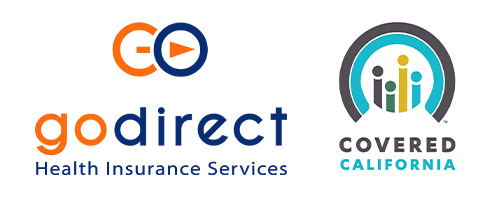
Understanding How Your Health Insurance Works For You
Copays, premiums, deductibles…what does all of this mean??? Now that you have an insurance plan, it’s important to understand how it works for you. Let’s start with the basics. The definitions and explanations provided below will help you get a basic understanding of how your insurance plan works, what it costs you, and how much you can expect to pay when you get sick or injured.
Nevertheless, we know that this can be confusing. Just give us a call at 888-411-1095 or contact us online to setup a no-cost consultation appointment, and we will be happy to explain how your plan is structured and what to expect from it.
Premium
This is the amount you pay for your health insurance every month. If you ever hear someone say their health insurance “costs” a certain amount, or that they switched to a new plan to save money, this is what they’re talking about.
Deductible
Your deductible is the amount you pay for covered health care services before your insurance plan starts to pay. So if your plan has a $2,000 deductible, you would be responsible for paying for any medical services you need until you have reached $2,000 that year. When you’ve reached your deductible, you usually only have to pay copayments or coinsurance for covered services, while your insurance company pays for the rest. One more thing to keep in mind is that family plans often have an individual deductible that applies to each person on the plan, as well as a family deductible that applies to the family as a whole.
Copayment
A copay, as it is often called, is a fixed amount you pay for a covered health care service after your deductible has been met. This is typically a visit to your primary care doctor, a specialist, or a facility like urgent care. Many plans pay for certain services or offer copays before your deductible has been met, so it’s important to know what the case is for your insurance plan.
Coinsurance
Coinsurance, on the other hand, is the percentage of costs that you have to pay after your deductible has been met. This is what a lot of people think of when they think of health insurance – you pay for a portion and the insurance company pays for a portion. This kicks in once you’ve reached your annual deductible.
Max Out-of-Pocket
This is the maximum amount of money you will have to pay for covered health care services in a year. This amount is typically higher than your deductible, so for example if your deductible is $2,000 then your max out-of-pocket might be $4,000. Once your deductible has been reached, your insurance company would begin paying for a percentage of your costs (coinsurance), but you will still be responsible for a portion. Once you have reached your annual max out-of-pocket, though, you will no longer have to pay for covered medical services. And just like your deductible, if you have a family plan you will have a max out-of-pocket for individuals as well as the family as a whole. You should be aware of both your individual and family max out-of-pocket amounts as this is how much money you could end up spending if someone gets into a car accident, requires a hospital stay, needs surgery, gets diagnosed with a critical illness, etc.
In-Network vs. Out-of-Network
In most cases, you will get the most benefit and/or have to pay the least out-of-pocket when you visit doctors or go to medical facilities inside in your network. If you don’t already have a relationship with a family doctor in your network, you should check your insurance company’s website to find one that is accepting new patients. The same goes for Urgent Care facilities. It’s better to find out now where you need to go, rather than wait until you’re sick or in need of medical care. In the case of an actual emergency, go straight to the hospital. Insurance companies cannot make you pay more if you go to out-of-network hospitals in the case of an emergency, and they cannot require you to get prior approval to go out-of-network.
We Can Help You Plan
It can be difficult to keep track of what exactly your insurance plan is going to pay for, and what you will have to pay for, especially if you get a diagnosis that requires treatment or a procedure. We are here to help! We can help you understand how your insurance plan will work for you in a given situation so that you can plan accordingly. Just give us a call at 888-411-1095 or contact us online to setup a no-cost consultation appointment.

